
George Orson Welles was an American director, actor, screenwriter and producer who is remembered for his innovative work in radio, theatre and film. He is considered to be among the greatest and most influential filmmakers of all time.
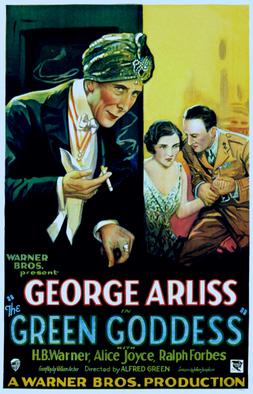
The Green Goddess is a 1930 American pre-Code film directed by Alfred E. Green. It was a remake of the 1923 silent film, which was in turn based on the play of the same name by William Archer. It was produced by Warner Bros. using their new Vitaphone sound system, and adapted by Julien Josephson.
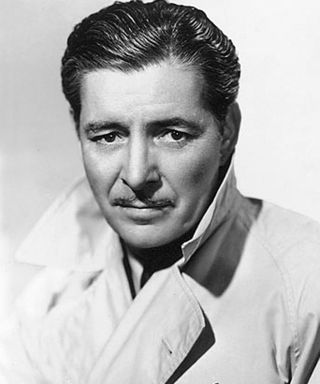
Ronald Charles Colman was an English-born actor, starting his career in theatre and silent film in his native country, then immigrating to the United States and having a successful Hollywood film career. He was most popular during the 1920s, 1930s and 1940s. He received Oscar nominations for Bulldog Drummond (1929), Condemned (1929) and Random Harvest (1942). Colman starred in several classic films, including A Tale of Two Cities (1935), Lost Horizon (1937) and The Prisoner of Zenda (1937). He also played the starring role in the Technicolor classic Kismet (1944), with Marlene Dietrich, which was nominated for four Academy Awards. In 1947, he won an Academy Award for Best Actor and Golden Globe Award for Best Actor for the film A Double Life.

Julien Josephson was an American motion picture screenwriter. His career spanned between 1914 and 1943. He was a native of Roseburg, Oregon.
"The Monkey's Paw" is a horror short story by English author W. W. Jacobs. It first appeared in Harper's Monthly in 1902, and was reprinted in his third collection of short stories, The Lady of the Barge also in 1902. In the story, three wishes are granted to the owner of The Monkey's Paw, but the wishes come with an enormous price for interfering with fate.

Margaret Mary Day Lockwood, CBE, was an English actress. One of Britain's most popular film stars of the 1930s and 1940s, her film appearances included The Lady Vanishes (1938), Night Train to Munich (1940), The Man in Grey (1943), and The Wicked Lady (1945). She was nominated for the BAFTA Award for Best British Actress for the 1955 film Cast a Dark Shadow. She also starred in the television series Justice (1971–74).

The Mercury Theatre was an independent repertory theatre company founded in New York City in 1937 by Orson Welles and producer John Houseman. The company produced theatrical presentations, radio programs and motion pictures. The Mercury also released promptbooks and phonographic recordings of four Shakespeare works for use in schools.
Green Goddess refers to the Bedford RLHZ Self Propelled Pump, a fire engine used by the British Armed Forces.

Twentieth Century is a 1932 play by Ben Hecht and Charles MacArthur based on the unproduced play Napoleon of Broadway by Charles B. Millholland, inspired by his experience working for the eccentric Broadway impresario David Belasco.

George Arliss was an English actor, author, playwright, and filmmaker who found success in the United States. He was the first British actor to win an Academy Award – which he won for his performance as Victorian-era British prime minister Benjamin Disraeli in Disraeli (1929) – as well as the earliest-born actor to win the honour. He specialized in successful biopics, such as Disraeli, Voltaire (1933), and Cardinal Richelieu (1935), as well as light comedies, which included The Millionaire (1931) and A Successful Calamity (1932).

Liliom is a 1909 play by the Hungarian playwright Ferenc Molnár. It was well known in its own right during the early to mid-20th century, but is best known today as the basis for the Rodgers and Hammerstein 1945 musical Carousel.
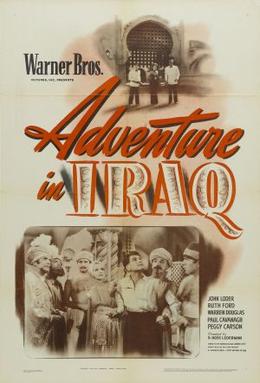
Adventure in Iraq is a 1943 American adventure film directed by D. Ross Lederman and starring John Loder, Ruth Ford, Warren Douglas and Paul Cavanagh. The film is based on the 1921 play The Green Goddess by William Archer.
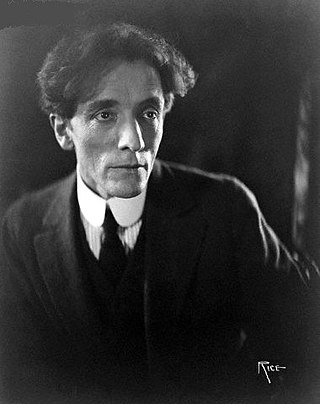
Nigel De Brulier was an English stage and film actor who began his career in the United Kingdom before relocating to the United States.
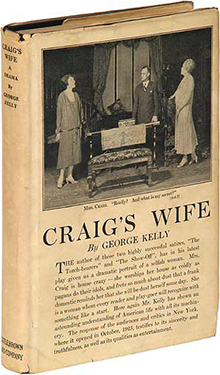
Craig's Wife is a 1925 play written by American playwright George Kelly. It won the 1926 Pulitzer Prize for Drama, and has been adapted for three feature films.

Margaret Dale was an American stage and film actress. She performed on Broadway for over fifty years and occasionally did films in the 1920s. She appeared in a large number of Broadway hits over the course of her years as an actress.

The Green Goddess is a 1923 American silent adventure film based on the play The Green Goddess by William Archer. Set during the British Raj, it stars George Arliss as the Rajah of Rukh, into whose land arrive three British subjects, played by Alice Joyce, David Powell, and Harry T. Morey. Arliss, Joyce and Ivan F. Simpson reprised their roles from the play and also in the 1930 talking film version The Green Goddess.
Samuel George Herbert Mason was a British film director, producer, stage actor, army officer, presenter of some revues, stage manager, stage director, choreographer, production manager and playwright. He was a recipient of the Military Cross the prestigious award for "gallantry during active operations against the enemy." He received the gallantry award for his part in the Battle of Guillemont where British troops defeated the Germans to take the German stronghold of Guillemont.
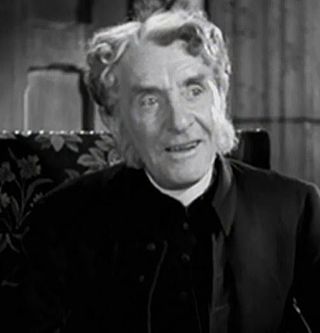
Ivan F. Simpson was a Scottish film and stage actor.
The Bad Man is a 1920 three-act comedy by American playwright Porter Emerson Browne. The Broadway production at the Comedy Theatre ran for 342 performances beginning August 30, 1920. It was included in Burns Mantle's The Best Plays of 1920–1921.

Peter Ibbetson is a play based on George du Maurier's 1891 novel of the same name. It debuted in the United States in 1917.















